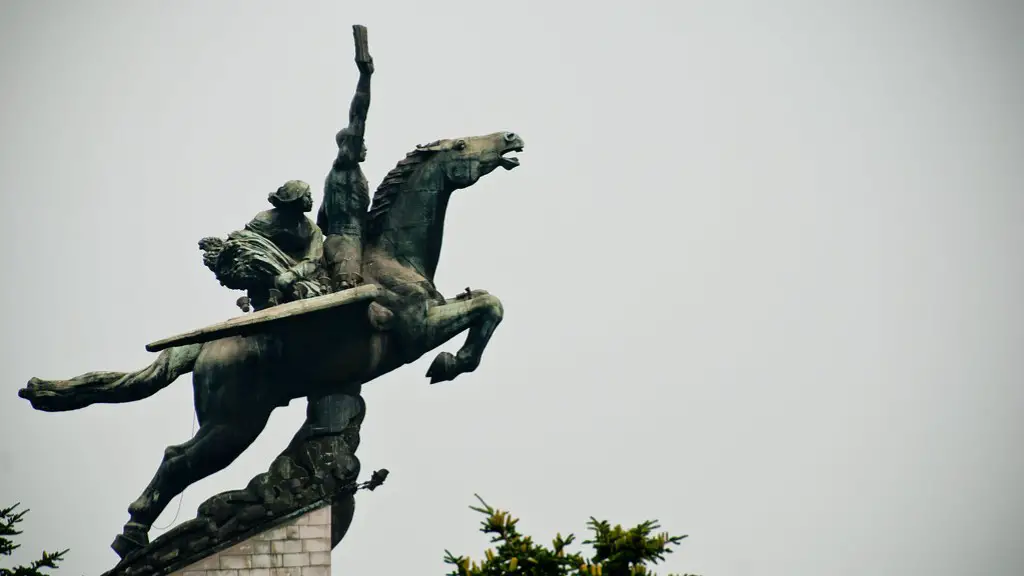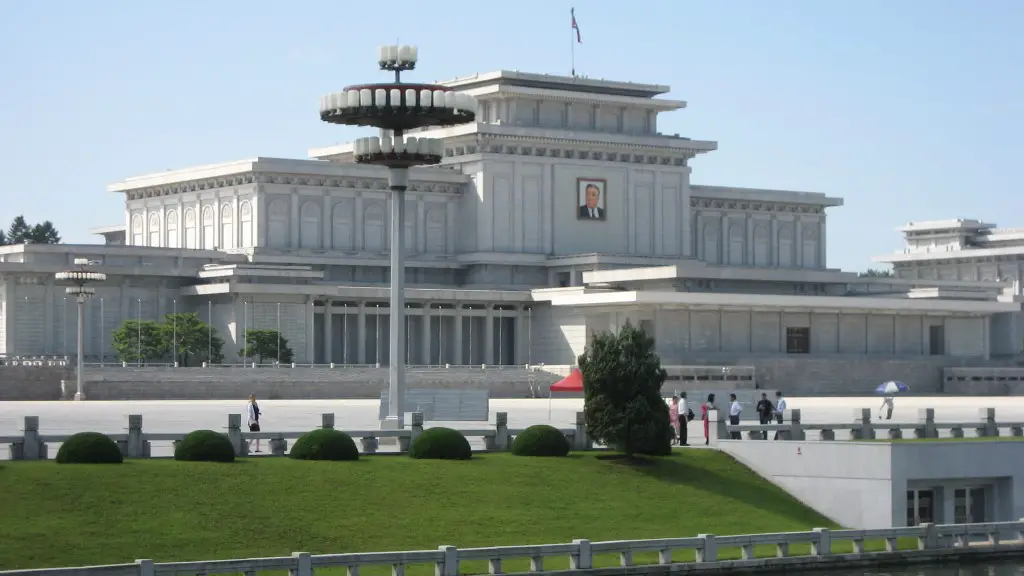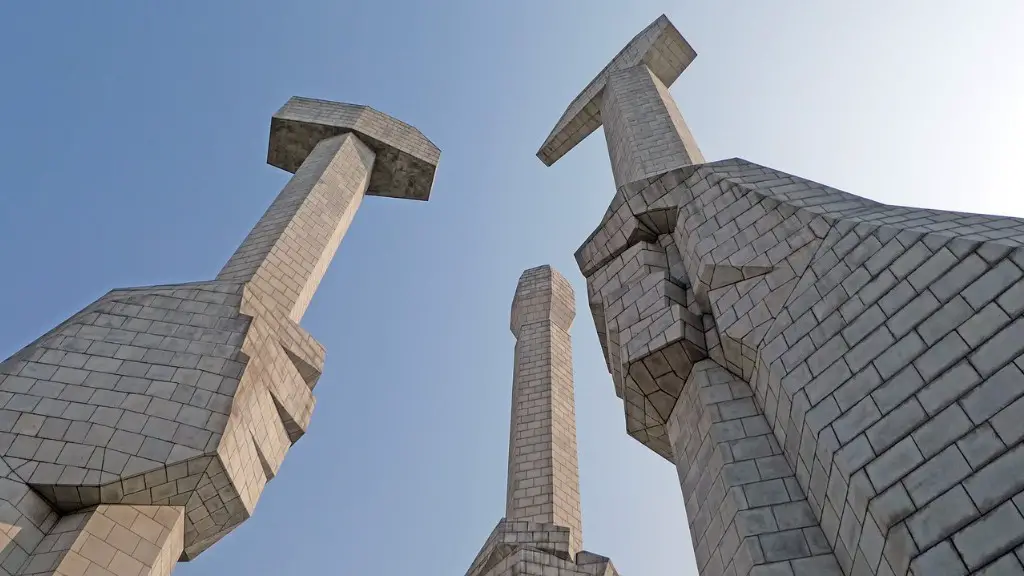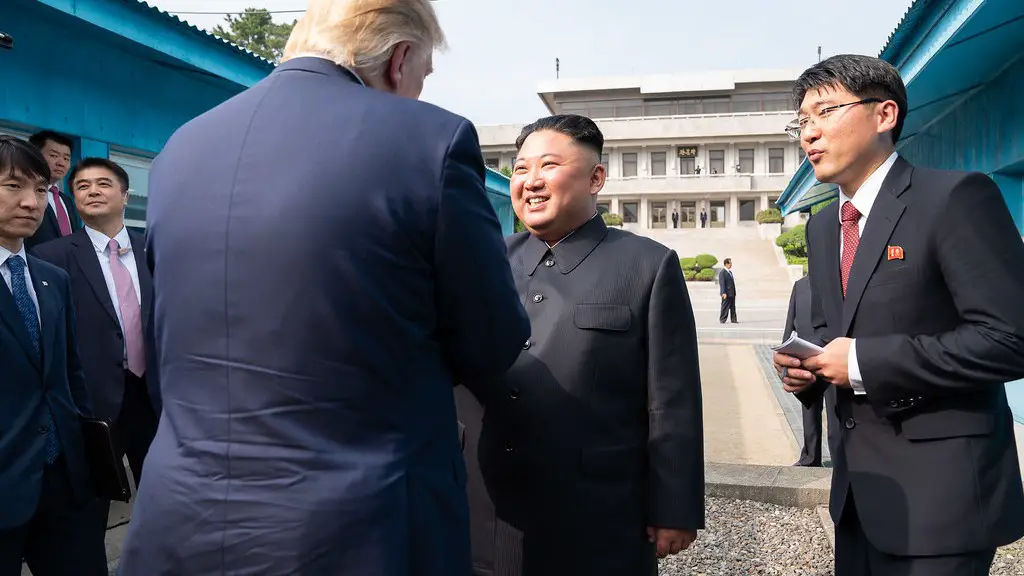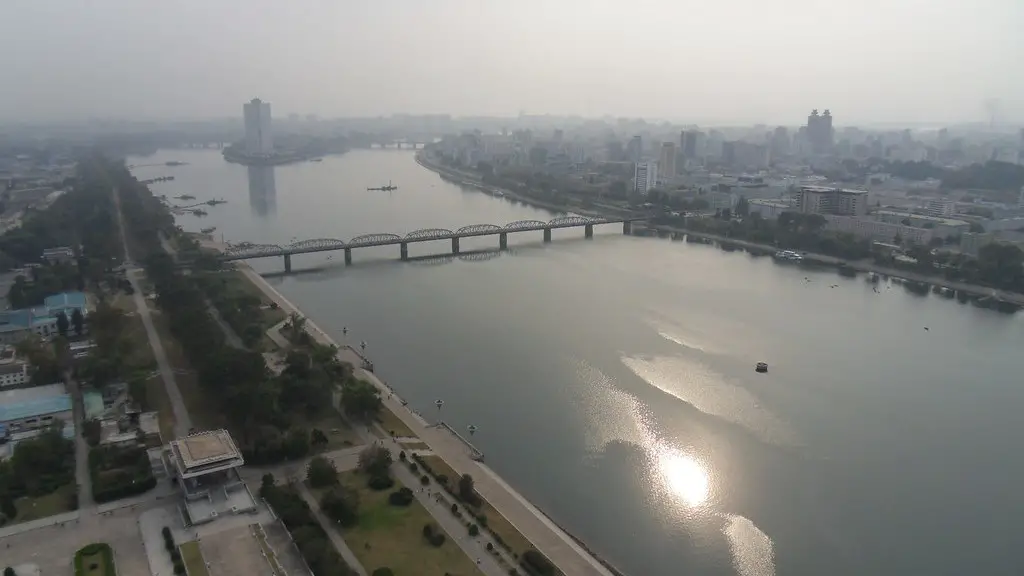A Rare Look Inside North Korea
North Korea, formally known as the Democratic People’s Republic of Korea, is one of the most isolated countries in the world. With its heavily censored state-controlled media, it can be a challenge to get a glimpse inside the isolated nation and learn about its people, culture and government. North Korea has long been shrouded in secrecy, and what lies beyond its heavily guarded borders is a mystery for all but the few who have had the opportunity to experience it firsthand. To get a rare look inside North Korea, one must take a carefully guided tour of the nation and carefully consider the potential risks that come with it.
The media in North Korea is tightly controlled by the government, and any attempt to disseminate information from North Korea is strictly monitored and censored. As such, it can be difficult to get reliable information regarding the government and its policies, as well as the living conditions inside the country. Although there have been several reports and studies on life in North Korea, most of these come from media sources outside of the country and are often unreliable.
For those wanting to get an inside look at North Korea, the safest and most reliable option is to take a guided tour. There are several tour companies that specialize in arranging trips to the country, and these tours have become increasingly popular in recent years. The guided tours are the only way to get a glimpse into the country, and it is important to note that there are serious restrictions on what visitors can photograph and where they can go. Also, visitors need to be aware that the North Korean government monitors visitors closely and it is best to adhere to the rules of the tour.
Upon entering North Korea, visitors usually notice the immediate security. Armed soldiers often stand guard along the roadsides, and people are not permitted to move around freely. There are also guards at all public places, such as markets and parks, and tourists are rarely allowed to go anywhere unaccompanied. In terms of infrastructure, North Korea is quite behind the rest of the world. Electricity shortages and fuel scarcity are common problems, and roads and buildings are often in disrepair.
Despite the restrictions, visitors are often surprised by the hospitality they receive from the North Korean people. Although speaking freely is not permitted and conversations are carefully monitored, people usually remain polite and friendly. People can often be found playing music on the street and enjoying local festivals such as the Arirang Mass Games, a massive gymnastics show involving thousands of participants.
The most striking feature of North Korea is the reverence for its leader Kim Jong-Un. Everywhere one looks in the country, there are statues of him, images of him, and songs sung in his honor. The people are taught to put Kim Jong-Un before everything else, including their own well-being. This is the reality of life in North Korea and those looking to get a rare look inside should be aware of the risks involved.
Sanctions
One of the most important topics when it comes to understanding North Korea is the current sanctions system that has been imposed upon the country by the international community. These sanctions are intended to put pressure on the North Korean government to stop its nuclear weapons program and improve the conditions of its people. Sanctions include restrictions on the import and export of goods, tough penalties for businesses that do business with the North Korean government, and a travel ban for North Korean leaders. In recent years, there have been calls from some countries to lighten the sanctions, but the United States and its allies have been firm in their stance that the sanctions will remain in place until there is progress in denuclearization and the improvement of human rights.
The effect of these sanctions has been significant. North Korea’s economy is suffering greatly, with reports of devastating poverty and food insecurity. Other issues include the lack of quality medicine and medical care, limited access to education and the internet, and a distinct lack of civil liberties. All of these factors have combined to create a dire situation in North Korea, and it is clear that the sanctions have had a major impact on the country.
However, it is important to understand that the sanctions are not meant to hurt the people of North Korea. Instead, they are intended to pressure the government to abandon its nuclear ambitions and institute meaningful reforms that would improve the lives of its citizens. Hopefully, with continued international pressure and the help of the North Korean people, the country can be brought out of its decades-long isolation.
Defectors
One of the most tragic realities of North Korea is the large number of people who flee their home country in search of a better life. Defectors are individuals who leave North Korea due to the oppressive regime, lack of opportunity, and deteriorating living conditions. This can be a dangerous and sometimes even fatal journey, as defectors often have to cross unmarked borders and dangerous terrain while evading authorities. However, most North Korean defectors are able to eventually reach nearby countries such as South Korea, China and even the United States.
A number of defectors choose to speak out about their experience in the country and their escape. Through their stories, we gain an important insight into life in North Korea and the difficulties defectors must endure in order to reach freedom. Some of these stories are harrowing, with tales of torture, starvation and excruciating hardship. Others are more uplifting, with defectors finding a new life and an improved sense of freedom and opportunity. All of these stories help us to gain a better understanding of North Korea and the realities of defecting.
Defectors are often met with a unique set of challenges upon arriving in a new country. Many defectors have difficulty adjusting to life outside of North Korea, and many face language barriers and cultural obstacles. Furthermore, the traumatic experience of fleeing their home country can leave many defectors feeling isolated and lost. As such, it is important that defectors are provided with support when they arrive in a new country to ensure that they are safe, healthy, and able to make the most of the new opportunities available to them.
Why Visit North Korea?
Given the level of secrecy and the potential risks associated with a visit to North Korea, it would be easy to ask the question: Why would anyone want to go? Some people may be motivated by curiosity and a desire to explore a place that is still largely unknown. Others may be hoping to learn more about North Korean culture and gain insight into the lives of its people. Whatever the motivation, it is important to note that there are potential risks involved and travelers should do their research and be mindful of the restrictions.
Visiting North Korea can be a unique and eye-opening experience. While some visitors may come away with an unfavorable view of the country, others may gain a newfound appreciation for the culture and the people that inhabit it. It is possible to separate the regime from the country and its people, and many visitors are surprised to find that they are welcomed with warm hospitality. With a guided tour, travelers can gain a rare glimpse into the world’s most isolated country and its culture, which is why it can be an invaluable experience for many.
Censorship
Censorship is one of the most commonly used tools of control in North Korea. Control over the media and access to information is an essential part of the regime’s grip on power. The government tightly controls what information is disseminated to the outside world and what citizens are allowed to access. All forms of media and communication are closely monitored, and any information that is deemed to be a threat to the regime is quickly suppressed.
Internet access is tightly restricted, with most citizens only able to access a heavily censored and monitored version of the web. Furthermore, communication with the outside world is tightly regulated. Telephone calls and emails have to go through state-sanctioned networks, and even then, the content is closely monitored. Even international visitors often find their phones are unable to access local networks.
The government enforces a strict policy of isolationism, preventing North Koreans from having access to outside news, books, or any other form of foreign media. This is done in order to keep citizens from learning about the outside world and prevent them from forming their own opinions about the regime. By preventing access to outside information, North Koreans are unable to make informed decisions about the world and the country that surrounds them.
Education
The North Korean education system is highly centralized and heavily regulated. It is strongly focused on instilling loyalty to the State and its leaders. This is done through a carefully crafted curriculum centered on respect for the regime and its ideology. Subjects like history, mathematics, and science are all taught with a focus on the State and its leaders and any criticism is strictly forbidden. Furthermore, there is an emphasis on military-oriented subjects such as military songs and the use of weapons.
Not all North Koreans have access to education and those that do often face difficulties due to a lack of resources. Textbooks and other learning materials are in short supply, and many schools lack the proper infrastructure such as classrooms and desks. Some children are forced to walk for miles each day to attend school, as there is a lack of public transportation and it is often too dangerous for them to take the bus or train.
Despite the difficulties, there are some schools and programs dedicated to helping North Korean children get an education. Through these programs, North Korean children can gain access to learning materials, nutrition, and medical care. These programs often rely on donations, and although they may not be able to help all of the children, they can make a positive difference in the lives of those they reach.
Human Rights
One of the most serious issues facing North Korea is the dire state of human rights in the country. Reports have been released by the United Nations and various other organizations that document the numerous human rights violations that have occurred in the country. These violations include restrictions on freedom of speech and assembly, a lack of religious freedom, and numerous cases of torture and political imprisonment.
Furthermore, there is a severe lack of access to healthcare, food, and education. Diseases such as malaria and tuberculosis are widespread, and many North Korean citizens lack access to proper nutrition and medical care. It is also common for people to be forced to live in rudimentary shelters and to go long periods of time without electricity or running water.
North Korea is a place full of difficult realities and the human rights situation is one of the most concerning. It is important that the international community continue to put pressure on the North Korean government to improve the human rights conditions for its citizens. Until then, the people of North Korea will continue to suffer and their plight will go unheard.
